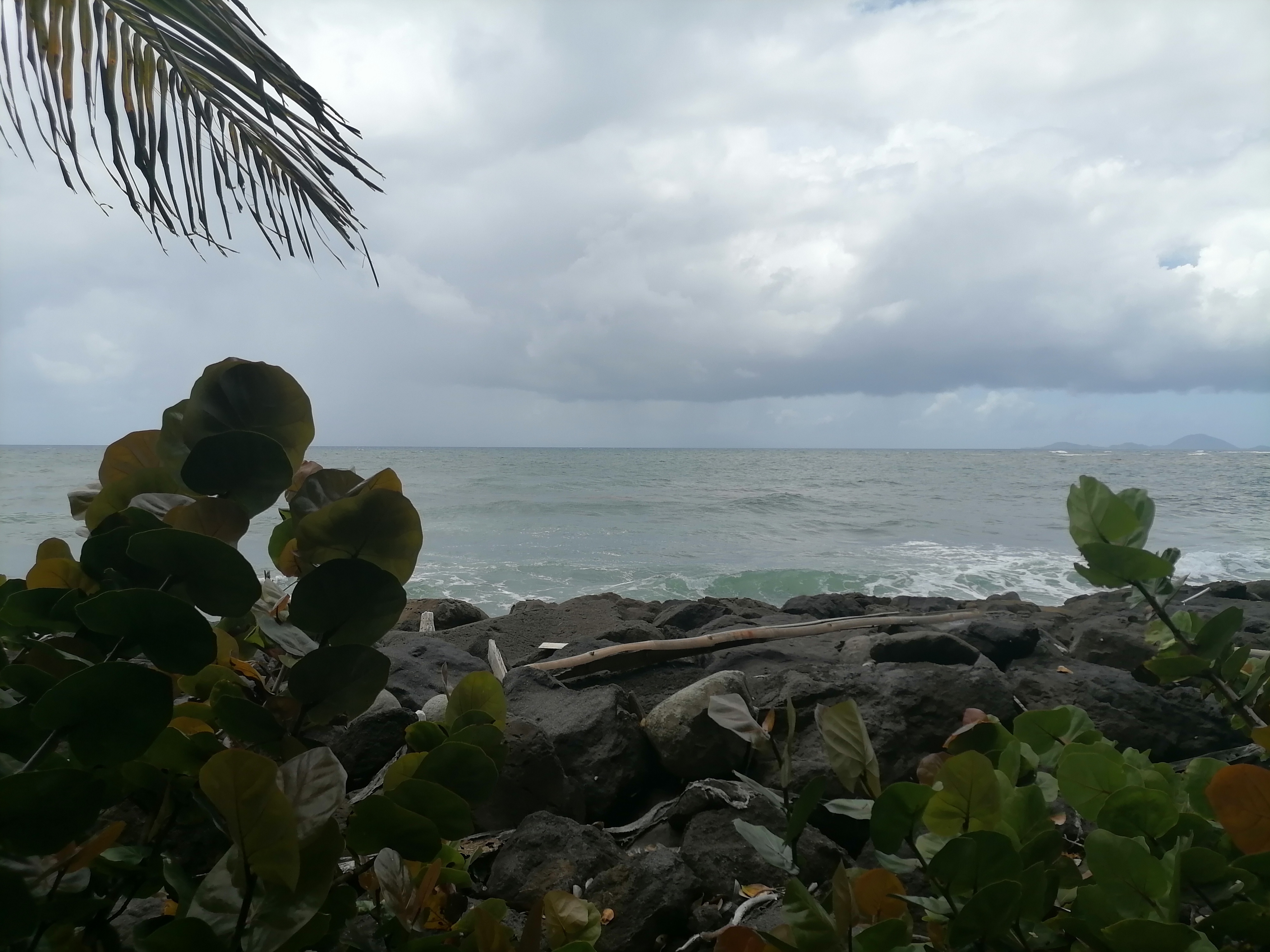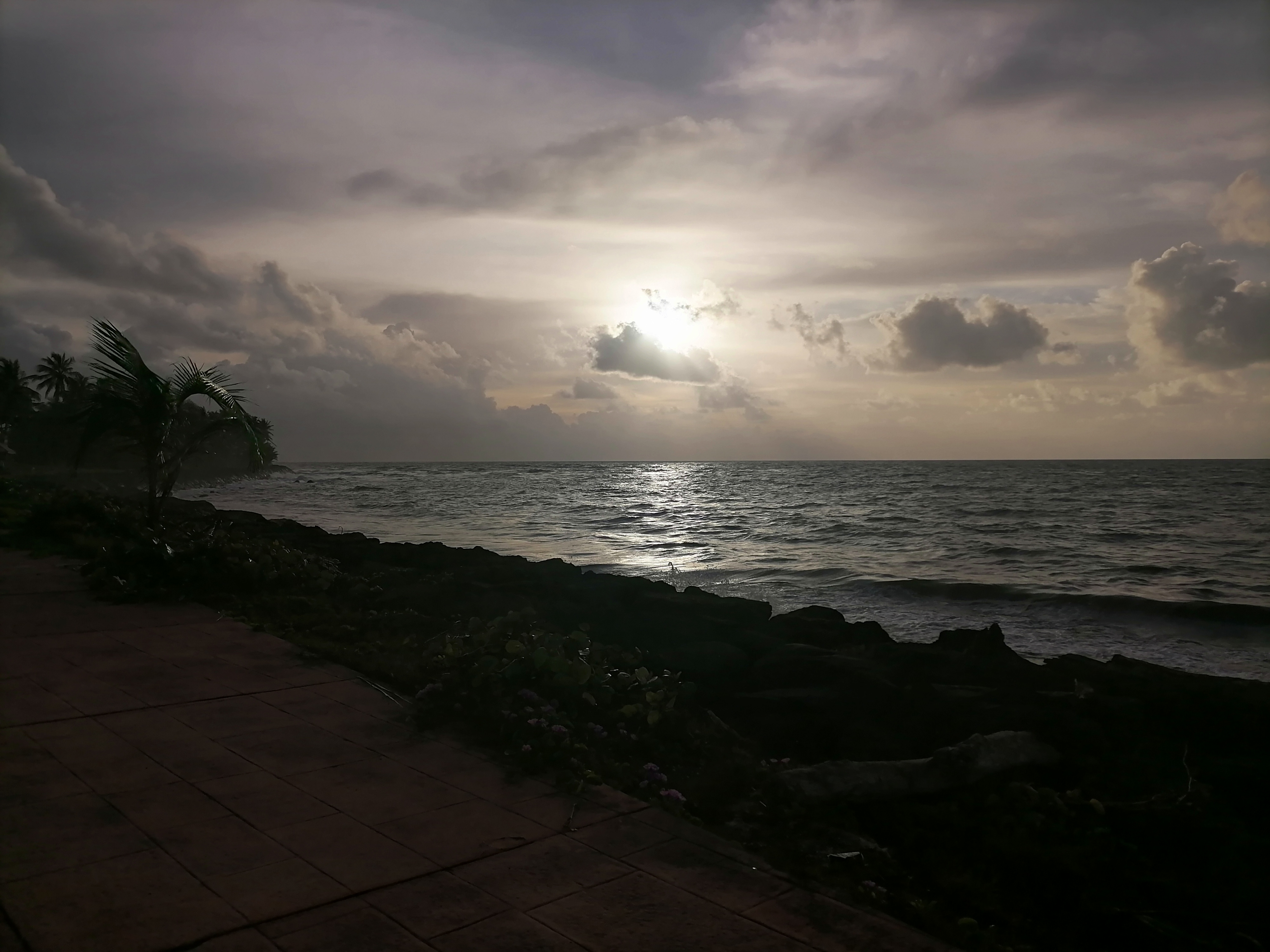The Psychological Toll of Coronavirus
While island-hopping around the Caribbean, I went to Guadeloupe. Spending a short while there, recuperating from some of my recent escapades on other islands, one day I noticed someone wearing a surgical mask. Little did I know how much that would affect me over the subsequent year.
As the days progressed, more people took to wearing the masks. Coronavirus had arrived. Stores shut down, public places emptied. The government closed the roads and the towns. Transportation to and from the island shut down, leaving me stuck in Guadeloupe.
The longer I stayed on the island, the more I witnessed psychological turmoil: in the local residents, in other non-locals stuck on the island, and in myself. Scientists have studied the psychological tolls of COVID-19, finding these as severe as post-traumatic stress disorder. (https://journals.plos.org/plosone/article?id=10.1371/journal.pone.0240146) People feel the events, then develop mental illness.

Coronavirus causes increases in anxiety, depression, and stress, a finding consistent in many different countries. (https://journals.plos.org/plosone/article?id=10.1371/journal.pone.0246824) These represent some of the more common mental health problems anyways, so the pandemic exasperates underlying issues. Approximately 80% of people in a study suffered panic after the Coronavirus epidemic hit, while nearly half exhibited generalized anxiety. (https://www.sciencedirect.com/science/article/abs/pii/S0165032720324460) Many people are suffering psychologically as a result of their fears, isolation, and loss of income. (https://advances.sciencemag.org/content/6/42/eabd5390.full)
The main sources of stress falling out of COVID include worries over finances, the ability to purchase basic supplies, and the infliction of social harms against others (https://journals.plos.org/plosone/article?id=10.1371/journal.pone.0246894). The worry over harming others occurs in a relatively collectivist culture, so worries over individual harms may have more relevance in other countries. Stress stems from anger at society, which in men has to do with financial difficulties, but for women with adjustments to routines. (https://journals.plos.org/plosone/article?id=10.1371/journal.pone.0246894) Negative feelings have spewed forth from the pandemic, including anxiety, anger, and vulnerability. (https://journals.plos.org/plosone/article?id=10.1371/journal.pone.0246894)
COVID-19 has had unprecedentedly immense effects on people's health, finances, and psychology. (https://journals.plos.org/plosone/article?id=10.1371/journal.pone.0246894) The effects are more severe for females and people with perceived financial difficulty, sedentary lifestyle, underlying medical conditions, or other aggravating factors. (https://journals.plos.org/plosone/article?id=10.1371/journal.pone.0248916) Females have more sensitive cognitive and emotional lives, and are more medically susceptible to the Coronavirus. (https://journals.plos.org/plosone/article?id=10.1371/journal.pone.0237626) People in medical school, who have more knowledge of the situation, perceive less risk than do those in college. Those studying in Wuhan, Hubei province, China, where the virus started, have more worries, understandably.
While the virus has had psychological effects on people in different countries, these effects have been far from equal. For instance, Thailand, whose economy relies on tourism, has had drastically more depression, anxiety, and stress than other Asian countries — even though it has had far fewer fatal or non-fatal cases of Coronavirus. (https://journals.plos.org/plosone/article?id=10.1371/journal.pone.0246824) Thailand lost around 6.7% of its GDP in 2020, more than any other Asian country. (https://journals.plos.org/plosone/article?id=10.1371/journal.pone.0246824) In other countries, like Pakistan, psychological problems resulted more from poor medical and sanitary conditions, rather than from economic costs. (https://journals.plos.org/plosone/article?id=10.1371/journal.pone.0246824) Some Pakistani health workers even considered quitting for lack of safety equipment. (https://journals.plos.org/plosone/article?id=10.1371/journal.pone.0246824)
Misinformation about Coronavirus increases people's susceptibility to mental woes. (https://journals.plos.org/plosone/article?id=10.1371/journal.pone.0246824) Demographically, young adults suffer more from the psychological symptoms of Coronavirus than do middle-aged adults. (https://journals.plos.org/plosone/article?id=10.1371/journal.pone.0248916) Having multiple children in one's household serves as a protective factor. (https://journals.plos.org/plosone/article?id=10.1371/journal.pone.0246824)
The COVID-19 pandemic has even affected life-and-death statistics. The National Center for Health Statistics (NCHS) took the unusual step of producing mortality data outside of its annual schedule. The report indicates that 17.7% more people died in 2020 than in 2019. That's half a million extra corpses. Well over half of these were caused by Coronavirus, ranking as the third leading cause of death, after only heart disease and cancer. (https://jamanetwork.com/journals/jama/fullarticle/2778234) Hundreds of thousands of additional Coronavirus deaths are occurring in 2021, in the US alone.
Suicides have increased during the pandemic. Scientists argue that depression is the facet that explains this. (https://journals.plos.org/plosone/article?id=10.1371/journal.pone.0248916) In addition to the dire problems that people face from the virus itself, they also struggle with indirect effects like the lockdowns. (https://journals.plos.org/plosone/article?id=10.1371/journal.pone.0240146) The psychological effects of COVID-19 will last long after the pandemic ends.
People in Guadeloupe, as well as other nearby islands, have suffered immensely from the Coronavirus. I met a woman from Dominica working in Guadeloupe, who could not return to her country. Frustration has spread throughout the Caribbean. Many of these islands depend on tourism. With borders closed, hotels and restaurants and much of the economy of these islands have ground to a halt.
Residents in Guadeloupe face isolation and crime, in addition to the stress and financial difficulties. Personally I have become a victim of multiple crimes, including the theft of a laptop and various electronics, as well as witnessing and hearing about other crimes. Many of these islands remain closed or practically closed to visitors, the lifeblood of the islands.
Over a year after the onset of Coronavirus, I remain in Guadeloupe. I had only expected to stay for a few weeks or so. In some sense, the mental problems have become even more serious as the pandemic has developed. Nonetheless, I and the other islanders — I've started thinking of myself as a resident, for now — adjust to a different life.


